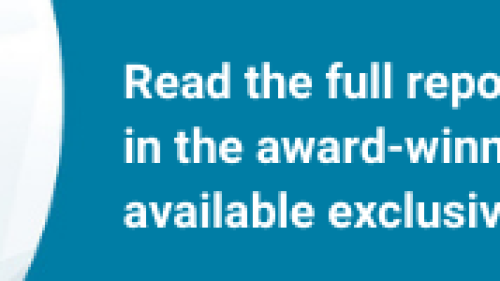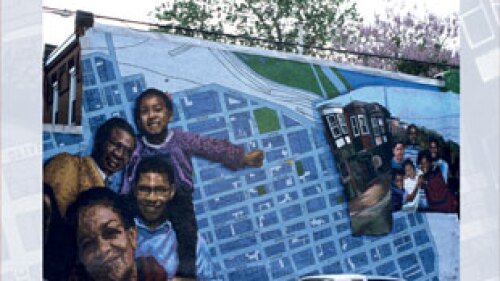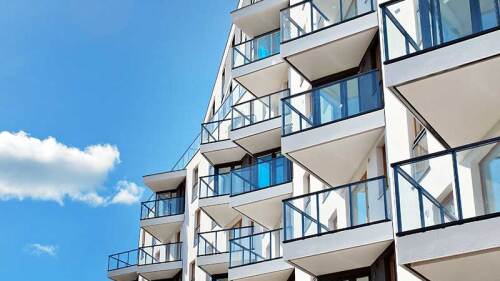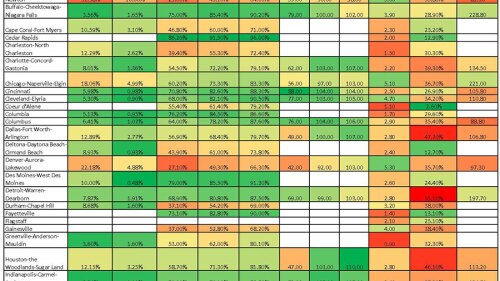Regulations and Zoning
From Dead Mall to Living District: Replacing the “Great Wall of Galleria” with a Connected Urban Core
Asia Pacific asset owners are just beginning to grapple with decarbonization and how to factor transition and climate risks into their valuations; even so, some markets and investors are already ahead of the pack. This topic was discussed as part of a recent ULI Asia Pacific webinar, part of a series looking at decarbonization.
The real estate industry can simultaneously combat inequality and boost property values by improving broadband access, according to a new ULI report. Broadband and Real Estate: Understanding the Opportunity, from the Institute’s Curtis Infrastructure Initiative, makes clear that high-speed internet is no longer a luxury but a necessity for participating in society and the economy.
In Furthering Fair Housing: Prospects for Racial Justice in America’s Neighborhoods(2021, Temple University Press), influential housing thought leaders delve into the history of the fair housing and community development movements that have worked to improve housing opportunity for nonwhite households and provide perspectives on potential pathways forward.
A study by the U.S. Federal Reserve Bank of Philadelphia showed that tenants who lost jobs during the COVID-19 pandemic may have already amassed $11 billion in rental arrears. Procedures for evictions and foreclosures may be failing the most vulnerable tenants and landlords.
The climate plan outlined by U.S. President-elect Joe Biden’s administration is significant in that it reaffirms a commitment to addressing climate challenges, said panelists participating in a recent webinar hosted by the ULI Center for Sustainability and Economic Performance. The plan would also provide considerable resources to support and propel innovation throughout the real estate industry in key areas such as energy efficiency, carbon emission mitigation, and climate change resilience.
A ULI Chicago task force has been working to expand housing options in the Chicagoland area by addressing regulatory barriers to the creation of accessory dwelling units (ADUs).
Government policies of racial segregation and redlining have had generations-long effects on the health and well-being of urban inhabitants, attendees heard at the ULI Virtual Fall Meeting panel titled “Deconstructing Segregation: Understanding Local History as a Basis for Equitable Development.” Action will be required if we wish to change those outcomes now.
ULI is renaming its annual $100,000 J.C. Nichols Prize as the ULI Prize for Visionaries in Urban Development. The change represents part of the Institute’s ongoing effort to address and assist in remedying the legacy of social and economic harm caused by some real estate practices.
The ULI Terwilliger Center for Housing has created a Home Attainability Index, designed to support ULI district councils, local municipalities, and members of the development community who are working to address longstanding challenges related to home affordability. Attainable housing and income segregation remain major challenges for families and communities across the United States.
The global impact on human health and economic stability resulting from the COVID-19 outbreak is likely to quickly and dramatically elevate health and wellness as key factors influencing urban design and development as well as building management and operations, according to industry experts convened by ULI for a webinar on the impacts of the pandemic. The event was the first of a series of webinars being offered to explore how various aspects of the real estate industry are being affected by the virus and the industry’s response.
In the past three years, the California Legislature has passed more than a dozen housing reforms addressing a swath of issues, including tenant protections, rent gouging, production of accessory dwelling units (ADUs), streamlined permitting for affordable and market-rate housing, new funding sources, and more. Though the pace may seem slow, there are signs of progress and hope for more in the future, panelists said at a ULI San Francisco event.













